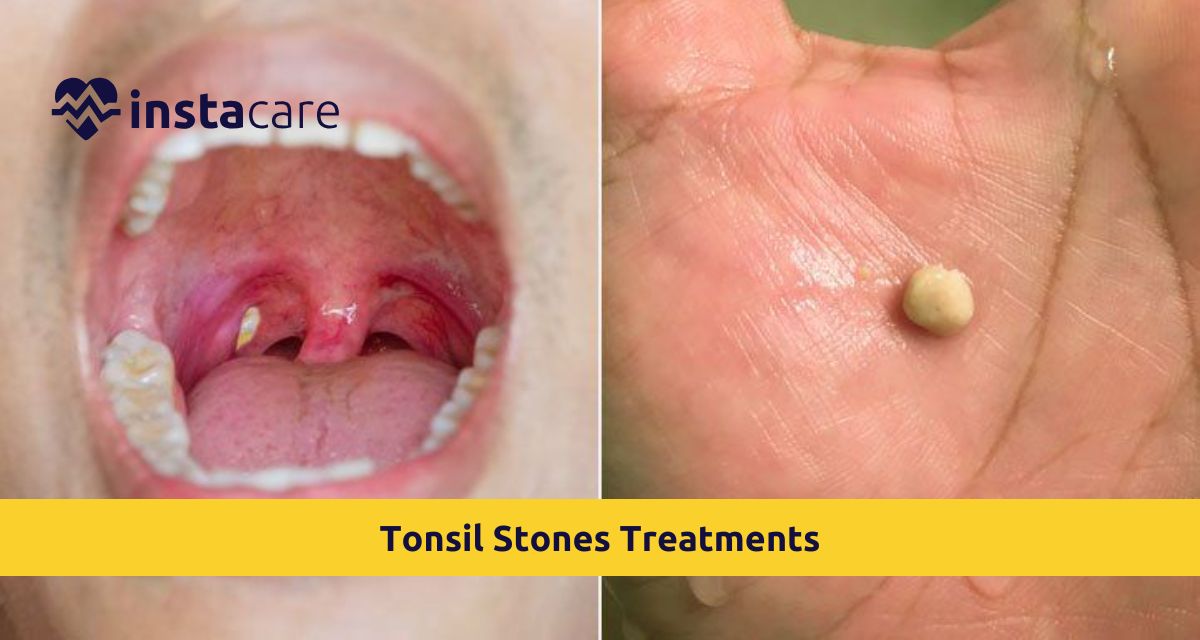Tonsil stones also known as tonsilloliths are small white
lumps formed by debris that accumulate in the tonsils’ hiding spots. These can
be very painful, it is characterized by foul odour, sore throat and can result
in difficulty in swallowing. With all
this information on the causes, symptoms, and available treatments for
tonsillolith, proper management is given to such said condition. This article
closely examines the different treatments that are administered and done to
eradicate tonsil stones, their efficacy, and when one should come to a doctor.
Understanding Tonsil Stones
What Are Tonsil Stones?
These are yellow or white deposits, which form from tonsils
these, are two that are located in the back section of the throat; you are told
where they are and you have one on the right side and the other on the left.
Tonsil stones can be said to be formations that take place within the tonsils,
on the tonsil Bedford as a pile up of food particles and dead cells, bacteria,
and mucus. If this debris is remains there for a long time it becomes calcified
and forms into stones.
Symptoms of Tonsil Stones
In most patients, tonsilloliths are usually asymptomatic; however, it often present with the following common manifestations:
- Bad Breath: Compounds caused by the bacteria of the tonsil
stones smell terrible.
- Sore Throat: It hurts or feels icky to swallow.
- Inability to Swallow: For the bigger stones, it may block
the process of swallowing and make one have a sense of something stuck in the
throat.
- Ear Pain: The pain can even refer to the ears due to typical
nerve patterning.
- Visible Stones: Tonsil stones can even be palpated as white
or yellowish lumps on the tonsils.
Management of Tonsil Stones
1. Self-Diagnosis
Some self-practiced techniques can help soothe down and
dislodge the smaller tonsil stones too.
A. Salt water gargling
Besides, it might even get some relief by rinsing with warm
saline solution as swelling and pain might improve somewhat. However, in
rinsing away a huge tonsil stone, gargling with salt water is not useful; it
may displace small-sized ones:
- Dissolve one teaspoon of salt in a glass of warm water.
- Gargle several times a day.
B. Hydration
She could keep herself slightly hydrated so that the throat
would be moist enough to further assist in washing away the debris. Drinking
enough water may also contribute to the prevention of stone formation
C. Cotton Swab Use
Some self-medicate to remove the tonsilloliths using a
cotton swab. This would be done by gently pressing on the tonsil to dislodge
the stone. This would call for cautious precaution so as not to further injure
or infect the patient.
2. Self-Relieving Medicines
Despite no cure lying in over-the-counter medicine for a
tonsil stone, there are a couple that can help in relieving the symptoms that
come with it. For instance, in this category,
Painkillers
Pain and discomfort can be alleviated with analgesic
medications such as ibuprofen or acetaminophen.
Oral Rinses
Oral medications to treat bad breath from tonsilloliths may
help mask the foul odor. Choose over-the-counter non-alcoholic preparations not
to exacerbate the problem.
3. Medical Therapy
A small appearing tonsil stone may need medical attention
when recurrent or severely painful.
A. Tonsillectomy
Very often, the treatment of choice for chronic sufferers can be an ultimate and definitive surgery: tonsillectomy or the removal of the patient's tonsils. In such cases, it may be the only way to completely eradicate the problem, especially if the patient continues to develop massive or painful stones.
- Indications for Tonsillectomy: Recurrent tonsillolithiasis,
obstructive sleep apnea, and recurrent attacks of tonsillitis.
- Recovery: Recovery from a tonsillectomy generally takes 7 to
14 days, where proper pain management and hydration are made.
B. Laser Cryptolysis
- Laser Cryptolysis is a minimally invasive procedure that
shrinks down the crypt of the tonsils. The crypts thus made are relatively hard
for debris to get collected there.
- Effectiveness: Studies reveal that laser cryptolysis may
profoundly decrease the recurrence of the formation of tonsil stone.
- Recovery: It hurts but usually less time than with
tonsillectomy.
C. Coblation Tonsillectomy
Coblation tonsillectomy is a surgical operation whereby a
radio-frequency current is used to remove the tonsil tissue without bothering
with the surrounding healthy tissue. It is a little less invasive, and the post
operation has more days than a normal tonsillectomy operation takes to heal.
4. Lifestyle Changes and Prevention
Prevention of tonsilloliths can also be made through good
oral hygiene and lifestyle changes.
A. Oral Hygiene
Practicing good oral hygiene can also reduce the likelihood
of tonsil stones:
- Oral Hygiene: Brush your teeth at least once in a day, and
floss regularly. This would remove the food particles along with the bacteria
responsible for making the tonsil stone.
- Oral Tongue Cleaning: Using a tongue scraper or brush will
help in removing the bacteria which are responsible for creating the buildup.
Diet Changes
At times, some diets can also help:
- Excessive milk intake: Some individuals produce more mucus,
which leads to being at risk of this disease.
- Intake of large amounts of fiber: Ingestion of fruits and vegetables will make it impossible to have the debris build up in the mouth.
C. Preventive Dental Check-Ups
Schedule regular dental check-ups, whereby any oral
condition that may have progressed into a stage that results in the culminating
formation of tonsil stone is detected.
When to Seek Medical Help
While tonsil stones are not serious in the majority of
cases, there are scenarios when medical attention may become a necessity:
- Serious Pain: When the pain is sharp, and even over-the-counter
meds do little to alleviate it.
- Persistent Symptoms: If symptoms like bad breath or sore
throat persist even after doing the remedies at home.
- Extreme choking or dyspnea: If big stones become a problem
in swallowing or breathing.
- Recurrent Tonsil Stones: You have recurrent tonsil stones that are impacting your quality of life.
Conclusion
Tonsil stone is a significant nuisance along with pain and
bad breath. Home remedies and over-the-counter medication can sometimes be of
some relief for even some of the most trivial of their symptoms. On the other
hand, chronic or chronic tonsillitis would be called in the medical side.
Therefore, directly related to your ability to take good care of your tonsil
stones is awareness of the spectrum of treatment modalities and preventive
measures. Proper care of your oral hygiene and the earliest visit to a doctor
can help keep the inconveniences of tonsil stones to the bare minimum.
Please book an appointment with the best ENT Specialist in Lahore, Karachi, Islamabad, and all major cities of Pakistan through InstaCare, or call our helpline at 03171777509 to find a verified doctor for your disease.










